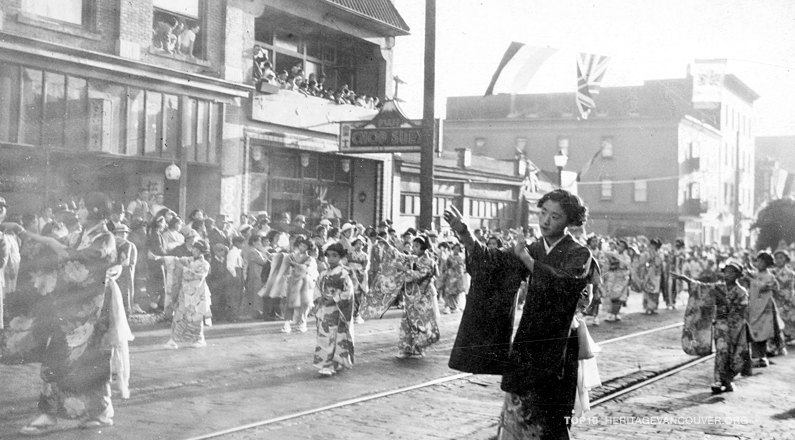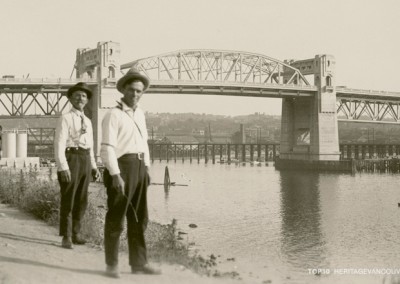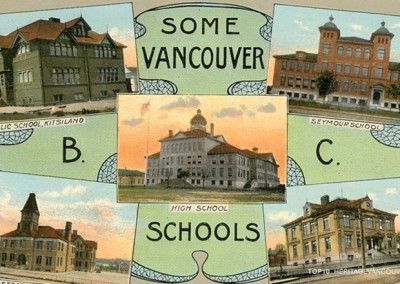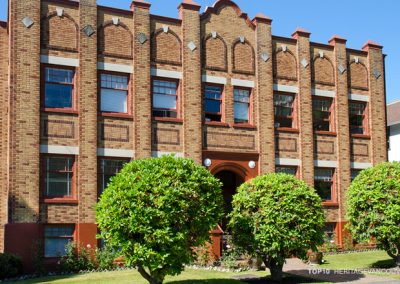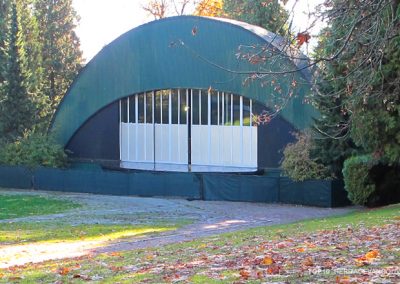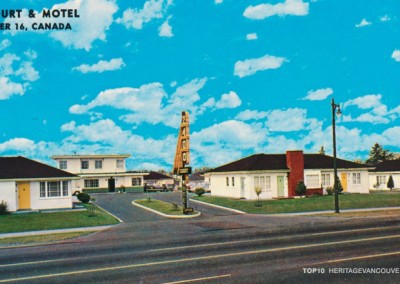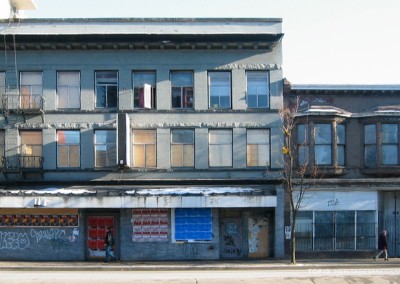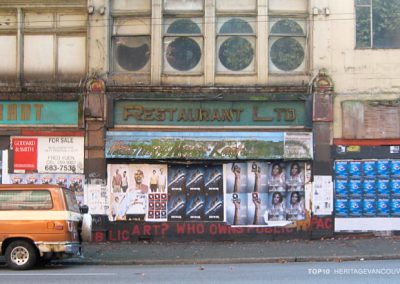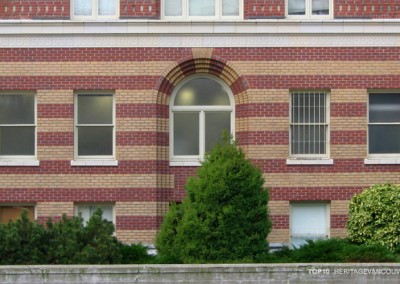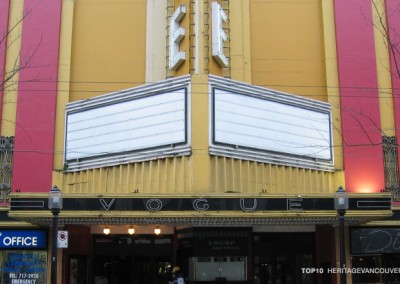It seems as if Japantown is fading away — without anyone caring or noticing. This distinctive area, centred on the 300-400 blocks of Powell Street, was the community’s historical centre.
Thriving businesses lined these blocks. One landmark, the Tamura Building, also known as the New World Hotel, 394-396 Powell Street (Townsend & Townsend, architects, 1912-14), with its graceful sheet metal ornamentation, anchors one corner of Oppenheimer Park.
Other, more modest buildings — with distinctive setback upper-floor balconies — were common in the area.
Still remaining in the 400-block Powell Street is a remarkable stand — and highly vulnerable — of two-storey wood ‘boomtown’ frontages reminiscent of early Gastown and Chinatown before the great fire.
The green space, originally called the Powell Street Grounds and later renamed Oppenheimer Park, has always been the focal point. During the Depression, the Vancouver Park Board declared Oppenheimer the only park where political, religious or other views could be publicly voiced.
In the 200-block Jackson Street, a cluster of early houses still borders the east side of the park, and on the south-west corner of the park at 385 East Cordova Street, the Sisters of Atonement occupy a house reputed by some to be the oldest in the city.
In 1942, Japantown was devastated when the federal government interned the Japanese and expropriated, and later sold, their property. Businesses and assets were either closed or confiscated. The formerly bustling enclave never recovered from the treatment it received during WWII. Perhaps the last building still used by the community, Japanese Hall, at 475 Alexander Street, is also the only designated heritage building on Alexander.
The general lack of protection is worrisome, as vestiges of the street’s ‘other’ history — at one time, Alexander was home to a number of ‘houses of ill-repute’ — still survive in the 500 block.
Numbers 502 Alexander Street (a ‘C’ on the Register) and 514 Alexander Street are long, narrow turn-of-the-century structures with flat roofs, brick façades and bay windows. They are an oddity in Vancouver — a strange cross between house and apartment.
Although the other ‘houses’ have been replaced by social housing or industrial buildings, other unusual structures still provide company, such as the Edwardian apartment buildings at 504 Alexander Street and 666 Alexander Street.
Over the past two decades, the accelerating decline of the Downtown East Side has hit Japantown particularly hard. The years of neglect have taken their toll and recently there has been a noticeable erosion of the building stock. If something isn’t done — and fast — there will be nothing left. With heritage incentives available for Gastown, Chinatown, Hastings Street and Victory Square, we ask: “Why not Japantown?”
Updates
Update January 17, 2008: The City of Vancouver has issued a Request for Proposal (PDF, 424k) for an Historical and Cultural Review of the Powell Street area known as Japantown, from the point of the evolution of the area, and its historical and cultural significance.
Resources
Japantown: Vancouver’s lost neighbourhood (with video)
Vancouver Sun; John Mackie; February 6, 2014
www.vancouversun.com/Japantown+Vancouver+lost+neighbourhood+with+video/9483788/story.html
